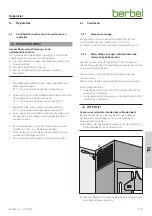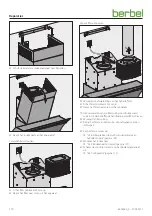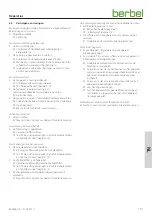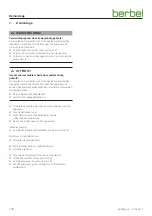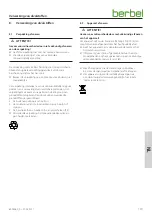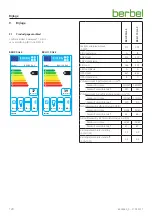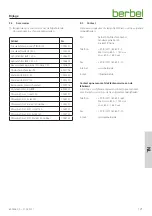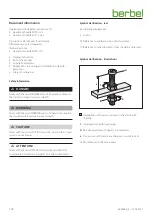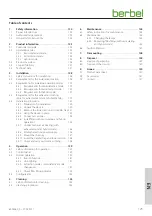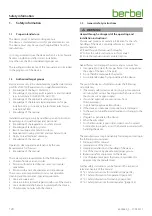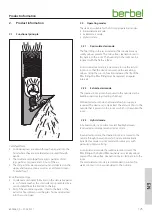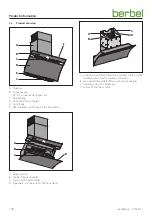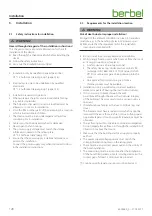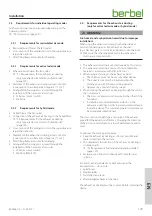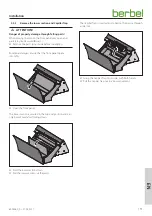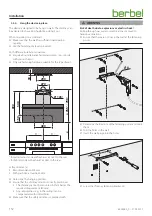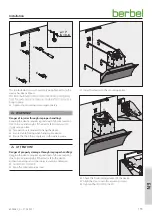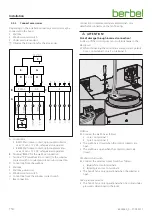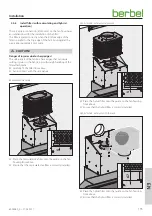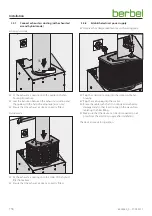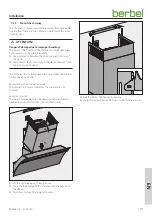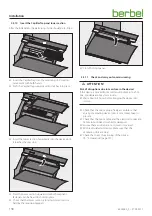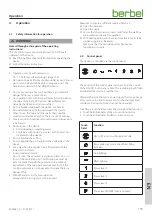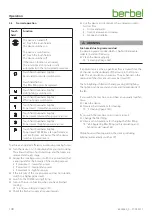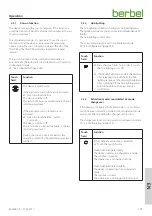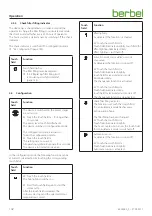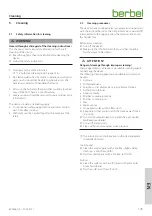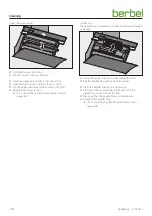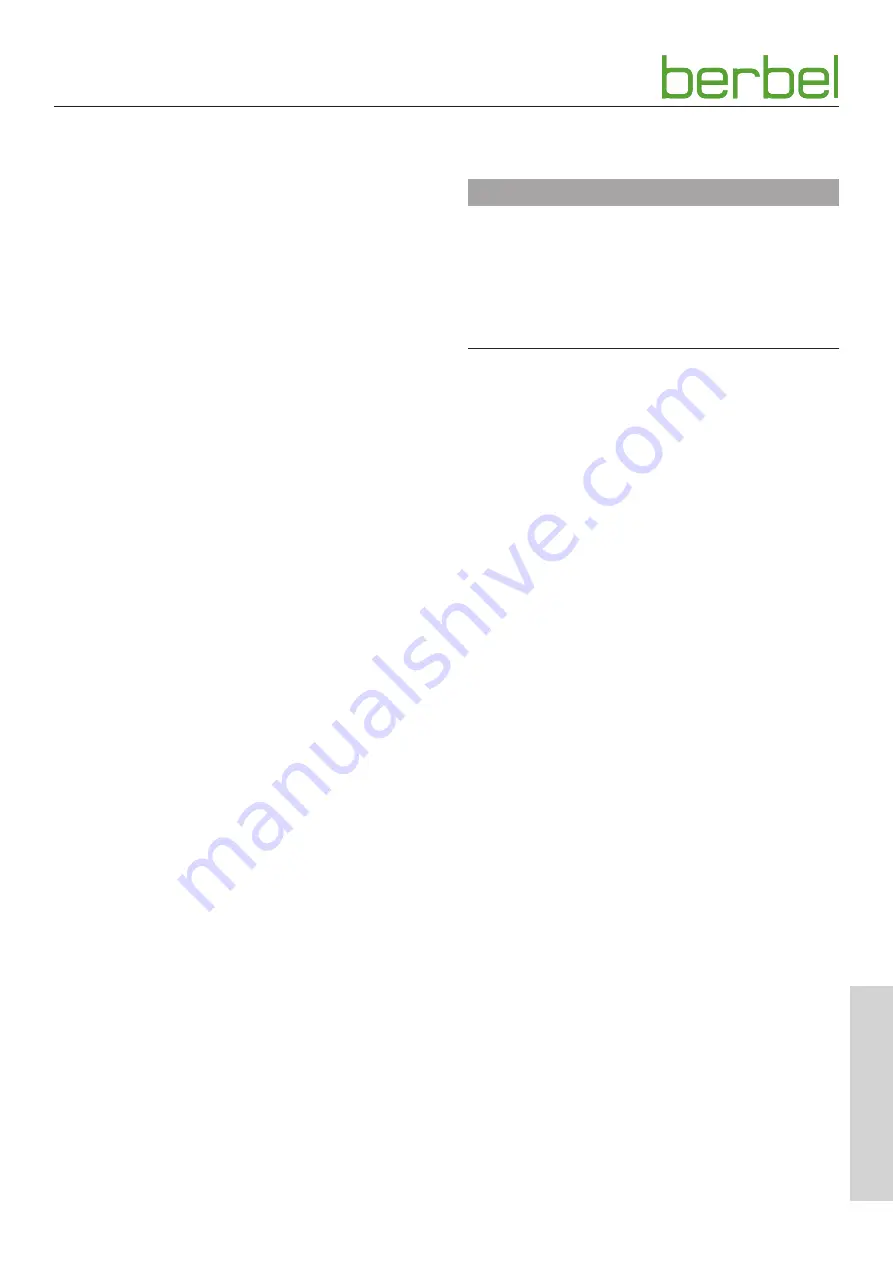
129
Installation
6003480_0 – 27.03.2017
EN
3.3
Requirements for individual operating modes
Further accessories may be required depending on the
operating mode.
D
“9.2 Accessories” (page 151).
3.3.1
Requirements for recirculated air mode
y
Recirculated air filter at the fan outlet.
y
Cross-section of the ventilation slot in the superstructure
larger than 300 cm
2
.
y
Filter filling freely accessible for changing.
3.3.2
Requirements for extracted air mode
y
Exhaust air ducting at the fan outlet.
D
“3.4 Requirements for the exhaust air ducting
(only for extracted air mode or hybrid mode)”
(page 129).
y
Diameter of the exhaust air ducting at least 150 mm
(corresponds to a surface area of approx. 177 cm
2
).
y
Adequate fresh air supply is assured through the
installation of the necessary accessories.
y
Window contact switch.
y
Wall box.
3.3.3
Requirements for hybrid mode
y
Hybrid filter at the fan outlet.
y
Connection of the exhaust air ducting to the hybrid filter.
D
“3.4 Requirements for the exhaust air ducting
(only for extracted air mode or hybrid mode)”
(page 129).
y
Cross-section of the ventilation slot in the superstructure
larger than 300 cm
2
.
y
Diameter of the exhaust air ducting at least 150 mm
(corresponds to a surface area of approx. 177 cm
2
).
y
Filter filling freely accessible for changing.
y
Adequate fresh air supply is assured through the
installation of the necessary accessories.
y
Window contact switch.
y
Wall box BMK-F 150.
3.4
Requirements for the exhaust air ducting
(only for extracted air mode or hybrid mode)
m
WARNING!
Fire hazard and asphyxiation hazard due to improper
installation!
When using the exhaust air ducting with other devices
or when connecting an active exhaust air channel
(e.g. chimney), gases or smoke can be drawn into the room.
Make sure that the requirements for the exhaust air
ducting are complied with.
y
The exhaust air ducting is used exclusively by this device.
y
The exhaust air ducting is made of non-combustible
material in accordance with DIN 4102 class 1.
y
When using a chimney as the exhaust air duct:
y
The chimney must not be used by other devices.
y
The extracted air must be introduced into the
chimney using a 90° bend pointing upwards.
y
Approval by a master chimney sweep.
y
When routing the exhaust air ducting through the roof or
the outside wall:
y
The cross-section must not be smaller than that of the
fan outlet.
y
Installation of condensed water collector in the
exhaust air ducting in order to prevent water damage
inside the device. The condensed water collector must
be adequately dimensioned.
The cross-section, length, type and course of the exhaust
pipe affect the extraction efficiency. Changing the direction
of the air too severely leads to a loss of performance and to
noise.
To optimise the device performance:
y
Keep the exhaust air ducting as short as possible and
route it directly to the outside.
y
The stipulated cross-section of the exhaust air ducting is
complied with.
D
“3.3 Requirements for individual operating modes”
(page 129).
y
Exclusive use of ducts and bends with smooth inner
surfaces.
In order to avoid turbulence or backpressure in the
transported air - do not use:
y
Spiral hoses.
y
Flexible tubes.
y
Flat deflection pieces.
y
Sharp-edged exhaust air channels.
The exhaust air ducting must be in place before installing the
device.
Summary of Contents for BKH 110 GL-2
Page 152: ...6003480_0 27 03 2017 ...

